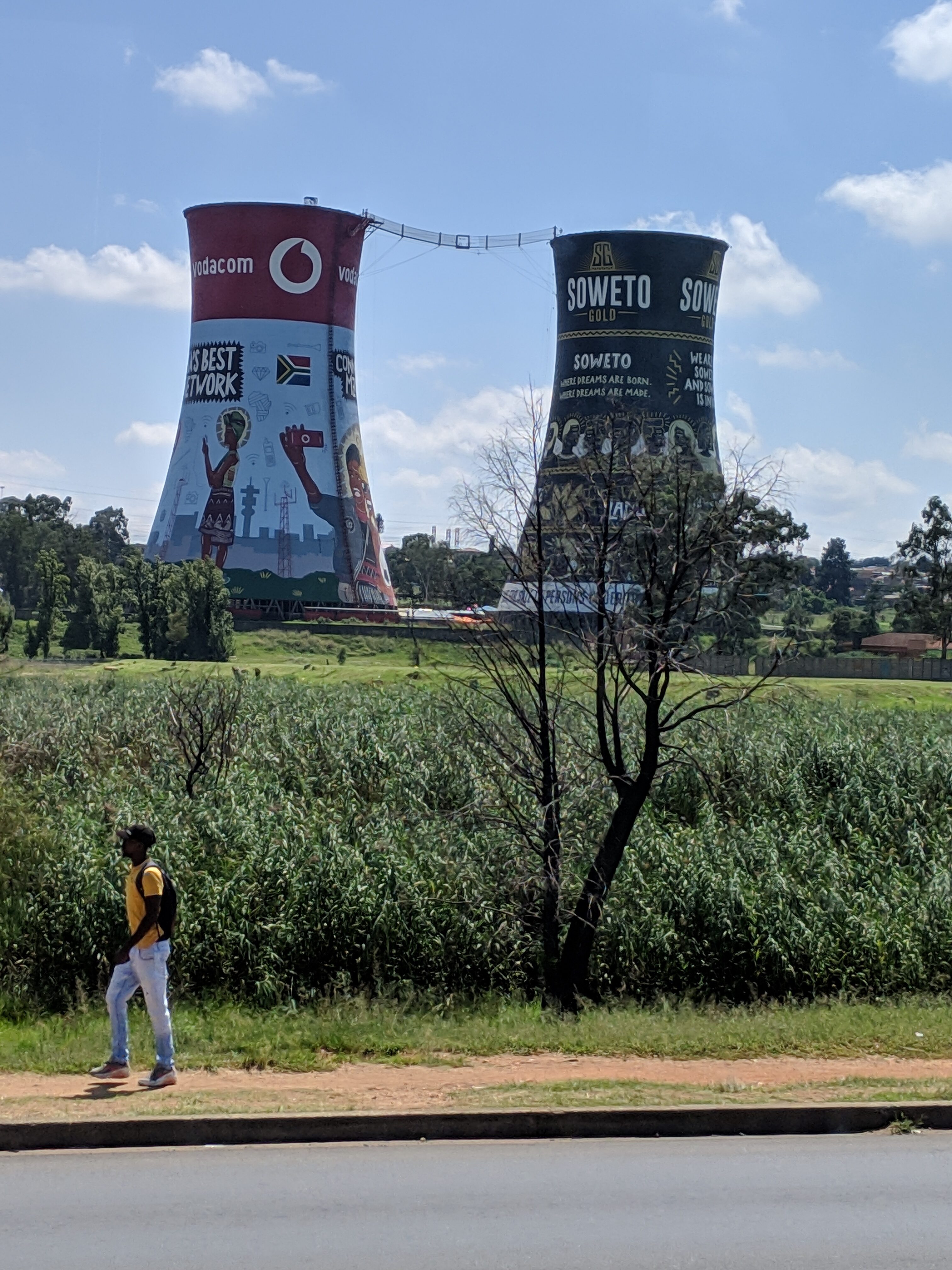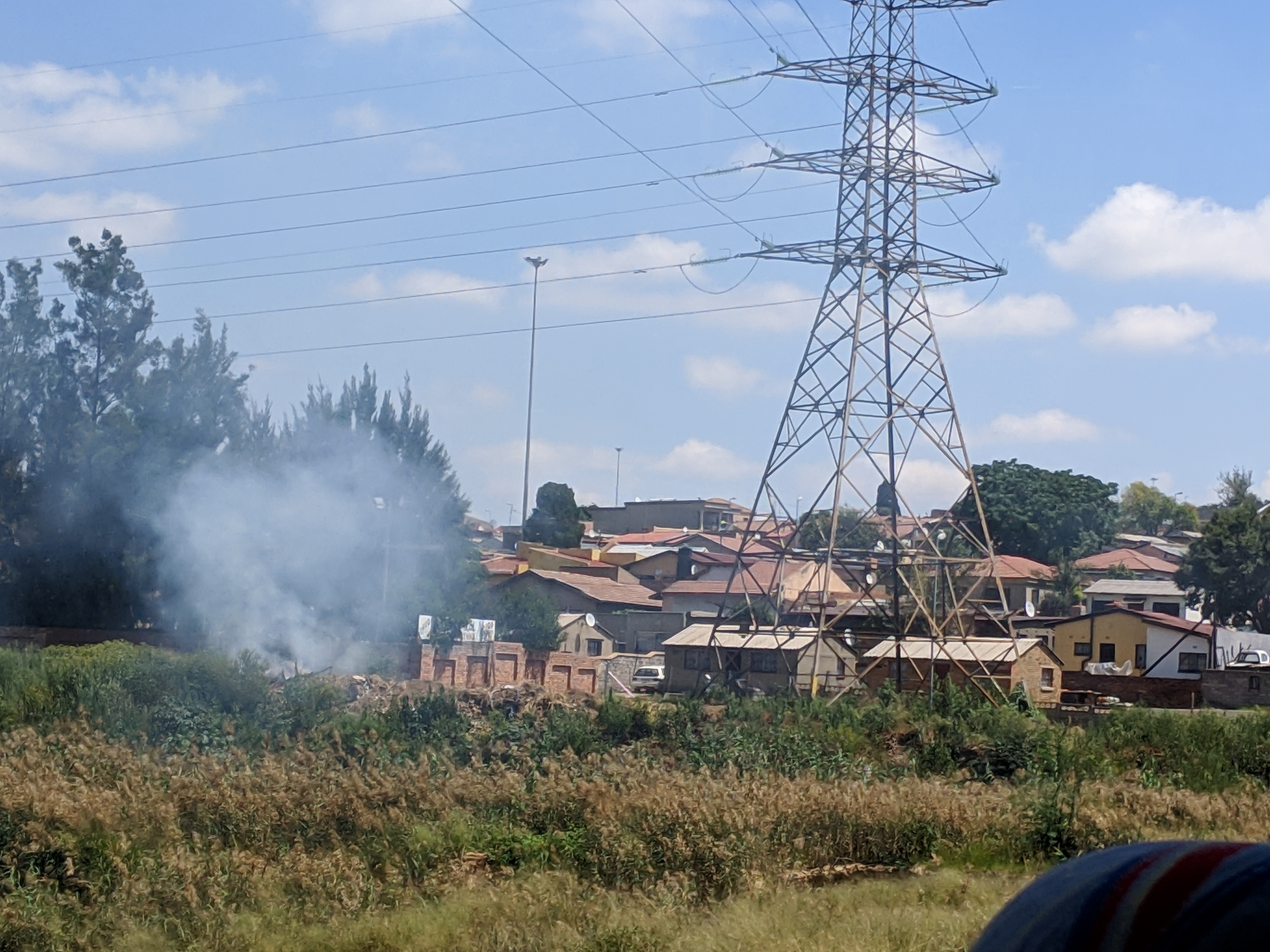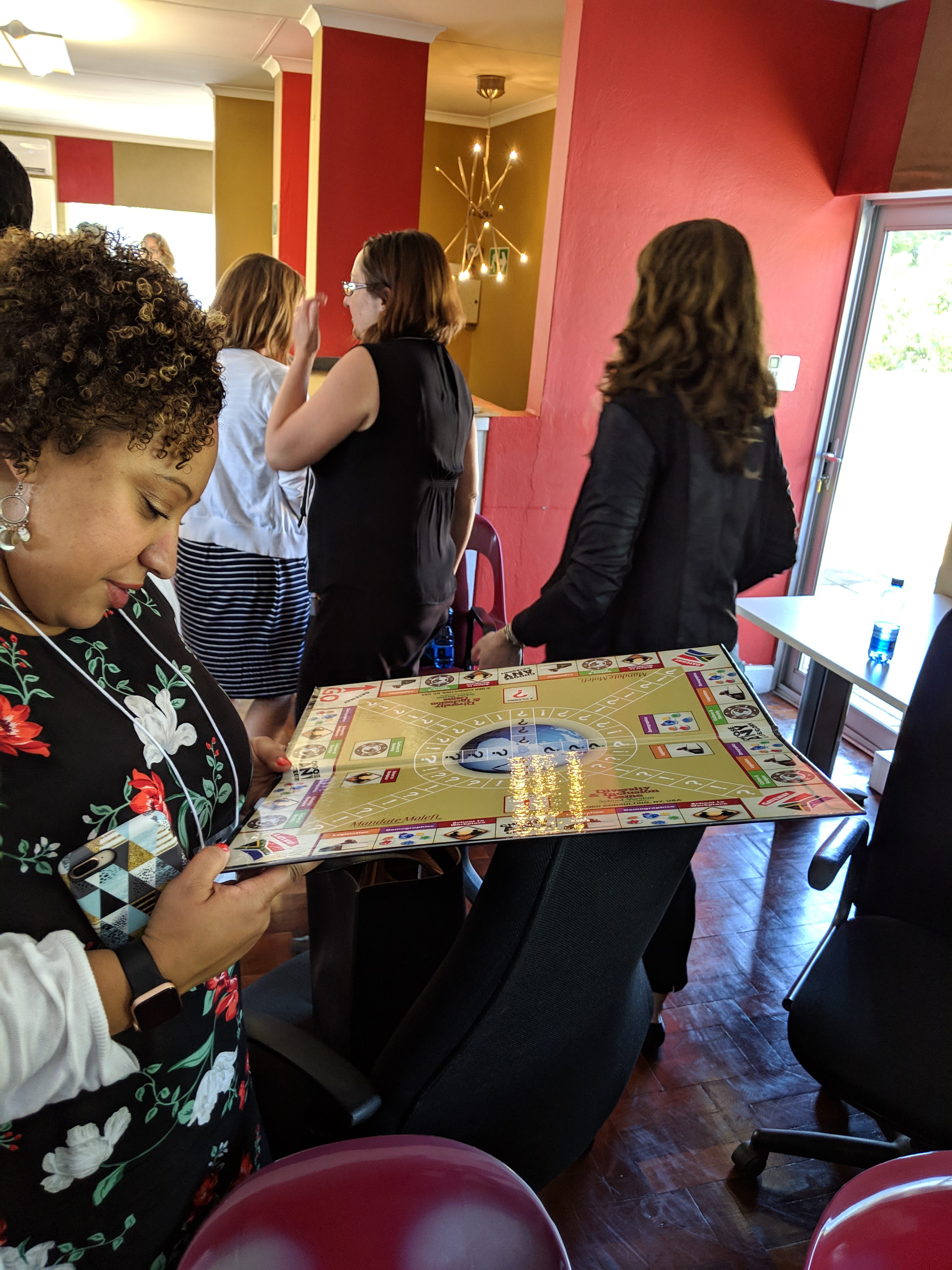Investing and creating jobs in South Africa
By Joye
There is great opportunity here; it’s a matter of getting passionate people who love this country to invest in it and create these jobs.

One of the things that I had been told before coming to South Africa was to be careful of crime. I wondered how much was fearmongering and how much was real. When we got on the bus to visit our first destination in Johannesburg, the thing that struck me was the gates and barbed wire surrounding every building. This sort of security extended to both homes and businesses. One of our site visit hosts was an American expatriate and he said that he got used to almost everything about Johannesburg, but it is still not accustomed to having a nice house but then having to have a wall around it. High crime is a carryover from apartheid, which created a vast socio-economic divide between groups in addition to the racial one. In multiple cases, black people were forced out of their homes and sent to live in townships. One of the other policies of apartheid was that certain groups had priority in getting jobs. Even jobs that white people did not want, such as factory jobs, were often set aside for “coloured” people first, before black people. These sort of policies contributed to the vast unemployment we still see today: 28 percent. With nearly a third of eligible workers unemployed, it explains why we so often saw groups of people hanging out on street corners, on grassy spaces, etc. apparently idle. I would often look at them as we drove past them on the bus. Sometimes I’d walk past them on the street. With no full-time job, where are these people going to go? What else are they going to do? It’s not a matter of laziness, there are simply no jobs for them. In addition, many of the people who do have jobs are underemployed. The unemployment rate also made me think about some of the problems that go along with unemployment. Obviously, crime is one of them. Having no job and no income can cause people to become desperate. I also wondered if there were drug problems, similar to the opioid crisis in the U.S., which sees peaks in areas with high unemployment. Having no job can set off a domino effect to a variety of other issues that can affect a whole society. I did not realize how high the unemployment rate was until I got here, and it’s one of the major problems that companies, government agencies, and NGO’s are tackling.

Secha Capital is one of the companies working on the unemployment problem. They call themselves an “impact investing” firm, which is debatable. However, they define themselves as making an impact because they create jobs for South Africans, and that is indeed important. The project we are working on for Nepad Business Foundation, involves creating a green circular economy for a mining region, as the coal mines are starting to run out of coal and are closing. Nepad had informed us that creating jobs was their top priority. In talking to them, they stressed the urgency of the matter. After seeing the situation firsthand, I understand why. With almost a third of the potential workforce unemployed, and many more about to become unemployed, the country faces a crisis. South Africa is considered an emerging economy, but if no new jobs are created, it is not going anywhere. Most of this workforce is unskilled labor, which adds another layer of complication. What is uplifting is that Secha Capital and Nepad Business Foundation, among others, are working to create these new jobs. Other companies, such as Mandate Molefi, are working to make sure that people that are seeking jobs are not discriminated against in the hiring process and those who have jobs are treated fairly at work so that they can stay in the workforce. It is inspiring to see so many people working to address this problem. There is great opportunity here; it’s a matter of getting passionate people who love this country to invest in it and create these jobs.
